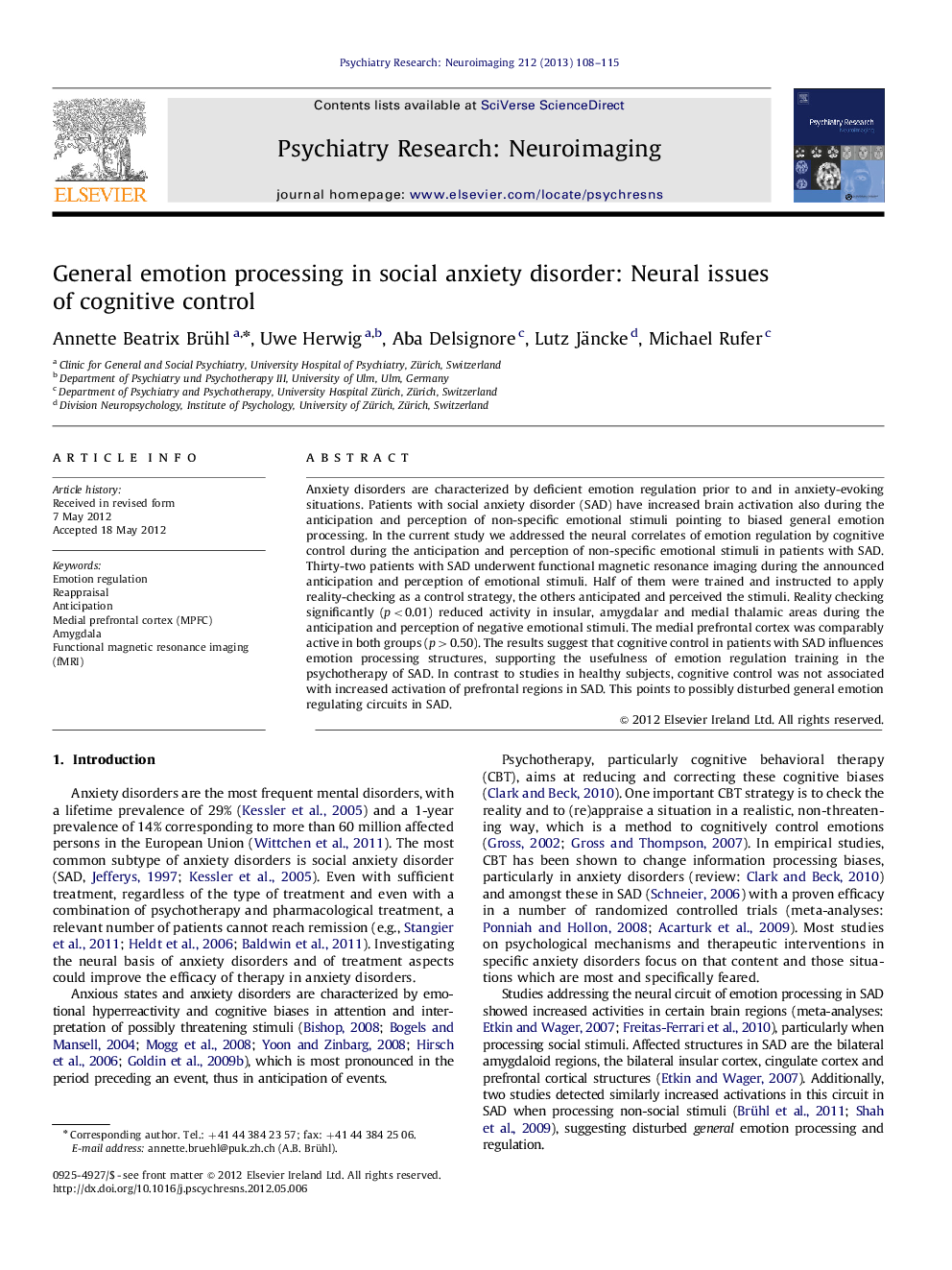| Article ID | Journal | Published Year | Pages | File Type |
|---|---|---|---|---|
| 335013 | Psychiatry Research: Neuroimaging | 2013 | 8 Pages |
Anxiety disorders are characterized by deficient emotion regulation prior to and in anxiety-evoking situations. Patients with social anxiety disorder (SAD) have increased brain activation also during the anticipation and perception of non-specific emotional stimuli pointing to biased general emotion processing. In the current study we addressed the neural correlates of emotion regulation by cognitive control during the anticipation and perception of non-specific emotional stimuli in patients with SAD. Thirty-two patients with SAD underwent functional magnetic resonance imaging during the announced anticipation and perception of emotional stimuli. Half of them were trained and instructed to apply reality-checking as a control strategy, the others anticipated and perceived the stimuli. Reality checking significantly (p<0.01) reduced activity in insular, amygdalar and medial thalamic areas during the anticipation and perception of negative emotional stimuli. The medial prefrontal cortex was comparably active in both groups (p>0.50). The results suggest that cognitive control in patients with SAD influences emotion processing structures, supporting the usefulness of emotion regulation training in the psychotherapy of SAD. In contrast to studies in healthy subjects, cognitive control was not associated with increased activation of prefrontal regions in SAD. This points to possibly disturbed general emotion regulating circuits in SAD.
